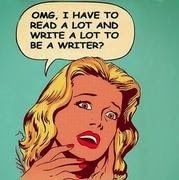Susan Rich's Blog, page 22
November 17, 2014
Are You Interested in Crime? Call for Submissions in Poetry and Prose

Special Issue on "Crime Writing"
The Human is now inviting submissions for a special issue to be published in June 2015. The special issue will be devoted to crime writing (fiction and non-fiction) in all of its diverse forms and multiplicity of cultural situations. The topic, for instance, may cover journalistic reportage, online fansites for aficionados of crime, detective fiction broadly construed, crime writing for children and young adults, hacking, true crime writing, historical crime writing, and other subjects. Interdisciplinary approaches are encouraged, as are treatments that deal with global (non-Western) writing or that bridge East and West. Less-covered subjects are most welcome. To check out the recent issue and submit by February 28th to http://www.humanjournal.org/
Published on November 17, 2014 04:00
Are You Interested in Crime?

Special Issue on "Crime Writing"
The Human is now inviting submissions for a special issue to be published in June 2015. The special issue will be devoted to crime writing (fiction and non-fiction) in all of its diverse forms and multiplicity of cultural situations. The topic, for instance, may cover journalistic reportage, online fansites for aficionados of crime, detective fiction broadly construed, crime writing for children and young adults, hacking, true crime writing, historical crime writing, and other subjects. Interdisciplinary approaches are encouraged, as are treatments that deal with global (non-Western) writing or that bridge East and West. Less-covered subjects are most welcome. To check out the recent issue and submit by February 28th to http://www.humanjournal.org/
Published on November 17, 2014 04:00
November 15, 2014
W.S. Merwin: The Thanksgiving Poem Made New
 Bill Merwin described by the NYT as "fabulously handsome"
Bill Merwin described by the NYT as "fabulously handsome" I'd say fabulous poet is just as apt. Once upon a time I crashed a party held in honor of Merwin's visit to Harvard. My friend needed to meet him; he was her poet god. I went along for moral support. His generosity and kindness to us --- we were clearly not "the" guests who could woo him in any way except for our love for the work. My friend's awkward declaration of love for his work was met with a pause, a long smile, and a "thank you; that makes me feel useful." Thank you, Mr. Merwin for a life model of how a poet can write and how a poet can live in this world.
Thanks
Listen
with the night falling we are saying thank you
we are stopping on the bridges to bow from the railings
we are running out of the glass rooms
with our mouths full of food to look at the sky
and say thank you
we are standing by the water thanking it
smiling by the windows looking out
in our directions
back from a series of hospitals back from a mugging
after funerals we are saying thank you
after the news of the dead
whether or not we knew them we are saying thank you
over telephones we are saying thank you
in doorways and in the backs of cars and in elevators
remembering wars and the police at the door
and the beatings on stairs we are saying thank you
in the banks we are saying thank you
in the faces of the officials and the rich
and of all who will never change
we go on saying thank you thank you
with the animals dying around us
our lost feelings we are saying thank you
with the forests falling faster than the minutes
of our lives we are saying thank you
with the words going out like cells of a brain
with the cities growing over us
we are saying thank you faster and faster
with nobody listening we are saying thank you
we are saying thank you and waving
dark though it is
W. S. Merwin from his collection Migrations: New and Selected Poems, Copper Canyon Press, 2005
Published on November 15, 2014 14:39
November 14, 2014
Denise Levertov: Poet, Poem, Memory
 Denise Levertov with lilies I saw Denise Levertov read at Brandeis University when I was a senior in high school. She was only the second poet I ever heard read, the first was Linda Pastan. Levertov wore a simple shirt, blue jeans, and read to us from the brown classroom desk --- cross-legged. Cross-legged!
Denise Levertov with lilies I saw Denise Levertov read at Brandeis University when I was a senior in high school. She was only the second poet I ever heard read, the first was Linda Pastan. Levertov wore a simple shirt, blue jeans, and read to us from the brown classroom desk --- cross-legged. Cross-legged!No adult had ever dressed or draped herself across a desk like this before. At least not in my presence. More than that, Levertov was having fun with us. She laughed and chatted in her New York-British accent. There were perhaps 30 people in the room.
Hearing Denise Levertov while still in my teens left a lifelong impression. Her essays The Poet in the World were the first critical essays I ever read on poetry and I still refer to them today. Most of all, her pleasure in the word and in conveying that pleasure to her audience is a constant model for me.
The complexity of her religious background --- her German father was born into a highly honored rabbinical family but converted to the Anglican Church when he moved to England. Levertov took up her own Christianity as subject midway through her life --- and it did not speak to me -- but her earlier and her later poetry did.
Here is a remembrance of Levertov found on the Image Journal blog by Murray Bodo -- this is a small part of the article but the part that spoke to me.
"One wonders how Levertov’s Welsh/Jewish heritage influenced her ear for language. Celtic traditions believe that the original harmony of the world is still to be found in the sounds of nature. The language imitates the sounds of the river, the waves, the seabirds, the wind. Kabalistic mysticism which influenced her father, is a repetitive re-weaving of primordial sounds in an attempt to heal a broken cadence. The Kabalists believed that every letter and sound of the Torah reveals God, and one of their mantric practices consisted of repeating the sound of a sacred word, much like the Buddhist sounding of “Om.” The Jewish mystics also believe that there are sacred tones, sounds and rhythms that are part of fundamental harmony. They seek to attain harmony with these sounds and rhythms as a way of re-establishing the disharmony or broken cadence between the human and the Divine."
Denise Levertov lived her last years in Seattle. I've learned from local musicians that she was "demanding" to work with as no instrument could be made to match the music in her head. And yet she continually allowed her poems to be set to music. The sense of sound and harmony was paramount to her. The Jewish traditions still alive.
Here is an early villanelle:
Obsessions
Maybe it is true we have to return
to the black air of ashcan city
because it is there the most life was burned,
as ghosts or criminals return?
But no, the city has no monopoly
of intense life. The dust burned
golden or violet in the wide land
to which we ran away, images
of passion sprang out of the land
as whirlwinds or red flowers, your hands
opened in anguish or clenched in violence
under that sun, and clasped my hands
in that place to which we will not return
where so much happened that no one else noticed,
where the city's ashes that we brought with us
flew into the intense sky still burning.
Denise Levertov, 1958 from "Collected Earlier Poems:1940-1960" New Directions Publishing Company
Published on November 14, 2014 09:54
November 13, 2014
Lovers Combined: Paintings that Change Names and Poems on Sound Cloud
 Courtyard by Max Lieberman part of the Frye Art Museum's #Social Medium Show
Courtyard by Max Lieberman part of the Frye Art Museum's #Social Medium Show This has been the Fall of voices --- a variety of poems and interviews on radio KUOW, KPTZ, and WICN. This week my poem Dutch Courtyard is included in the Frye Art Museum's show curated by museum goers worldwide. Here's the article that explains this bold public curated show. This is also how I found out that "my" painting has changed names! This is now Courtyard, 1882, by Max Lieberman. Two years after I wrote the poem as part of a grant project where I worked with Kelli Russell Agodon, Allen Braden, and Oliver de la Paz, researchers at the Frye found that they had had the name wrong all these years. Somehow the new name seems right. Also, more contemporary.
I love that a painting "Dutch Courtyard" can go from it's tiny spot on the wall (barely off the floor) onto a projected screen at the Frye, to a postcard gift for visitors, to worldwide internet curation, to a new name. I once heard that radio waves (do internet waves count?) will outlast any printed material on the planet. What will future inhabitants of earth or our galaxy think when they hear our poems read aloud?
There's a poem prompt right there. Or at least a thought for dreaming towards.
Published on November 13, 2014 17:44
November 11, 2014
Poems for Veterans Day - Kevin Powers, Brian Turner, and Yusef Komunyakaa

I know Kevin Power's work from his brilliant novel The Yellow Birds. The book was indeed written by a poet as his new collection of poetry attests. Here is one which begins and ends in love.
Letter Composed During a Lull in the Fighting
I tell her I love her like not killing
or ten minutes of sleep
beneath the low rooftop wall
on which my rifle rests.
I tell her in a letter that will stink,
when she opens it,
of bolt oil and burned powder
and the things it says.
I tell her how Pvt. Bartle says, offhand,
that war is just us
making little pieces of metal
pass through each other.
Kevin Powers
Brian Turner is an Iraq war veteran who is both a stellar poet (Here, Bullet and Phantom Noise) and recent memoirist (My Life As A Foreign Country). Brian is also a friend whom I have known since our graduate school days in Oregon. I say this only to underscore that this man is a poet who I know to be up to the task he's set himself: to chronicle the war that will define our generation.
Here, Bullet
If a body is what you want
then here is bone and gristle and flesh.
Here is the clavicle-snapped wish,
the aorta’s opened valves, the leap
thought makes at the synaptic gap.
Here is the adrenaline rush you crave,
that inexorable flight, that insane puncture
into heat and blood. And I dare you to finish
what you’ve started. Because here, Bullet,
here is where I complete the word you bring
hissing through the air, here is where I moan
the barrel’s cold esophagus, triggering
my tongue’s explosives for the rifling I have
inside of me, each twist of the round
spun deeper, because here, Bullet,
here is where the world ends, every time.
Brian Turner
From Komunyakaa's collection War Horses, I've included this prose poem which the he states was the initial one that sparked his collection. You can listen to him talk with KUOW's Elizabeth Austen about this poem and others. He also mentions how today's war machine resembles something of a car dealership. You can to his wisdom and strong voice here.
GRENADE
There's no rehearsal to turn flesh into dust so quickly. A hair-trigger, a cocked hammer in the brain, a split second between a man & infamy. It lands on the ground—a few soldiers duck & the others are caught in a half-run—& one throws himself down on the grenade. All the watches stop. A flash. Smoke. Silence. The sound fills the whole day. Flesh & earth fall into the eyes & mouths of the men. A scream trapped in midair. They touch their legs & arms, their groins, ears & noses, saying, What happened? Some are crying. Others are laughing. Some are almost dancing. Someone tries to put the dead man back together: "He just dove on the damn thing, Sir!" A flash. Smoke. Silence. The day blown apart. For those who can walk away, what is their burden? Shreds of flesh & bloody rags gathered up & stuffed into a bag. Each breath belongs to him. Each song. Each curse. Every prayer is his. Your body doesn't belong to your mind & soul. Who are you? Do you remember the man left in the jungle? The others who owe their lives to this phantom, do they feel like you? Would his loved ones remember him if that little park or statue erected in his name didn't exist, & does it enlarge their lives? You wish he'd lie down in that closed coffin, & not wander the streets or enter your bedroom at midnight. The woman you love, she'll never understand. Who would? You remember what he used to say: "If you give a kite too much string, it'll break free." That unselfish certainty. But you can't remember when you began to live his unspoken dreams.
Yusef Komunyakaa
Published on November 11, 2014 20:09
November 5, 2014
Writers Who Read ~ Thank You!

Thanks to GG Andrews for inviting me to be at guest at her blog Writers Who Read today.
Here is an excerpt for your reading pleasure:
The Writers Who Read series continues this week with poet Susan Rich.
 Who are you? I am a word addict. I’m into confetti and aquamarine; I love double-barreled words like “doorknob” and “backstabber,” “watermelon” and “windowpane” where I can grab two images for the price of one. Mostly, I answer to “poet” with a new book, CLOUD PHARMACY, still fresh from White Pine Press and “literary activist” because I’ve co-founded several organizations including Poets on the Coast: A Weekend Writing Retreat for Women.
Who are you? I am a word addict. I’m into confetti and aquamarine; I love double-barreled words like “doorknob” and “backstabber,” “watermelon” and “windowpane” where I can grab two images for the price of one. Mostly, I answer to “poet” with a new book, CLOUD PHARMACY, still fresh from White Pine Press and “literary activist” because I’ve co-founded several organizations including Poets on the Coast: A Weekend Writing Retreat for Women.If you’d like to know more about me there are a 101 links at my website and a “Top 10 Things to Consider When Sending Your Work to a Contest or Residency” at my blog.
What are three beloved books you first read before the age of 12?
Half Magic by Edward Eager concerning a mysterious coin that can take you back in time.
The Phantom Tollbooth by Norton Juster where we enter a new world with a dog named Tock for company and try not to get trapped forever in the land of Doldrums.
Wet Magic by Edith Nesbit (everything by E. Nesbit) where a gaggle of children find an underwater city where I so wanted to live that I read this book multiple times. Three times. 500 pages each time.
What is one book you are always recommending to friends and family (and maybe the local barista) as an adult?
To continue reading on GG Andrews blog, Writers Who Read go here.
Published on November 05, 2014 19:25
My New Life ... In Radio?

So I'm afraid this beautiful young woman is not me. What the two of us have in common though is a love of the microphone. Who knew?
A couple of years ago when I was hired to curate the Jack Straw Writers Program, one of my tasks was to interview each of the writers for a half hour podcast. After the initial terror wore off, I found that I loved interviewing writers, loved the intimacy of the one on one conversation amplified over radio waves. In a parallel universe I am Terry Gross interviewing artists, philosophers, and authors for NPR.
This week I had the privilege of reading the poem "The Woods" by Michael Bassett for Linebreak. If you don't know Linebreak, you are missing out on one of my favorite poetry "journals" although I use the world loosely here. Linebreak is such a simple and beautiful concept that I don't have a word for it.
Sign-up for Linebreak and once a week you will receive a really superb poem in your in-box. You can read the poem right then and there or you can choose to hear the poem read to you not by the author but rather an impartial poet. Years ago my poem "Letter to M" was published by Linebreak and read by the poet David Shattuck. It seems that a poem by a man will oftentimes be read by a woman and vice versa.
Perhaps I will never make my living reading books on tape or interviewing the brilliant and famous but I do get to fantasize with the help of Linebreak and Jack Straw Writers.
Published on November 05, 2014 05:00
My New Life

So I'm afraid this beautiful young woman is not me. What the two of us have in common though is a love of the microphone. Who knew?
A couple of years ago when I was hired to curate the Jack Straw Writers Program, one of my tasks was to interview each of the writers for a half hour podcast. After the initial terror wore off, I found that I loved interviewing writers, loved the intimacy of the one on one conversation amplified over radio waves. In a parallel universe I am Terry Gross interviewing artists, philosophers, and authors for NPR.
This week I had the privilege of reading the poem "The Woods" by Michael Bassett for Linebreak. If you don't know Linebreak, you are missing out on one of my favorite poetry "journals" although I use the world loosely here. Linebreak is such a simple and beautiful concept that I don't have a word for it.
Sign-up for Linebreak and once a week you will receive a really superb poem in your in-box. You can read the poem right then and there or you can choose to hear the poem read to you not by the author but rather an impartial poet. Years ago my poem "Letter to M" was published by Linebreak and read by the poet David Shattuck. It seems that a poem by a man will oftentimes be read by a woman and vice versa.
Perhaps I will never make my living reading books on tape or interviewing the brilliant and famous but I do get to fantasize with the help of Linebreak and Jack Straw Writers.
Published on November 05, 2014 05:00
November 3, 2014
Calling All Writers: On How to Read a Poem and the Inevitable Art of Rejection
 The Time Has Come by Joel Rea
The Time Has Come by Joel ReaTwo articles of interest to poets this week. The first is an Atlantic Monthly piece listing 20 Ways to Read Poetry: A Step by Step Guide by Mark Yakich. I'm especially fond of numbers 19 and 20. I'm less fond of the idea that getting drunk will help you understand a poem but that's just me. Here's a few steps to whet your appetite for the whole list.
3. Try to meet a poem on its terms not yours. If you have to “relate” to a poem in order to understand it, you aren’t reading it sufficiently. In other words, don’t try to fit the poem into your life. Try to see what world the poem creates. Then, if you are lucky, its world will help you re-see your own.
4. Whether or not you are conscious of it, you are always looking for an excuse to stop reading a poem and move on to another poem or to do something else entirely. Resist this urge as much as possible. Think of it as a Buddhist regards a pesky mosquito. The mosquito, like the poem, may be irritating, but it’s not going to kill you to brave it for a little while longer.
There's also a piece by Graywolf editor Jeff Shotts, on the Art of Rejection. The sobering, humorous, and stunning truth is that we writers who send our work our into the world will be rejected. We will be rejected again and again. The statistics on how many manuscripts Graywolf accepts out of what they receive sent chills down this writer's spine. The essay includes sassy poems on rejection. It also includes the fear editors have of missing the next great writer. How many publishers rejected The Clerk's Tale before it won the Bread Load Prize, for example. Over 200 times -- that's a lot of stamps. These two articles together comprise a sort of instruction manuel into the world of poetry.
 I wish one of these articles had made the point that creating a literary community in your town: starting a writing series or a literary festival or a poetry reading group can also help a writer create the kind of writing life she wants to live. But that's another article. One I will be writing soon.
I wish one of these articles had made the point that creating a literary community in your town: starting a writing series or a literary festival or a poetry reading group can also help a writer create the kind of writing life she wants to live. But that's another article. One I will be writing soon.
Published on November 03, 2014 09:22



